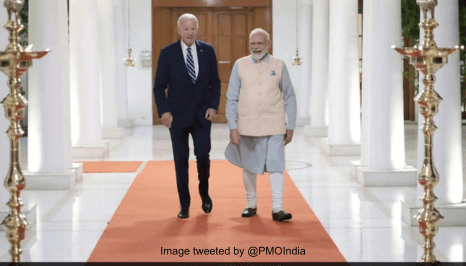
Biden Praises Modi’s Ukraine Visit, But What About Bangladesh?
Washington, D.C. — In a significant phone call on Monday, US President Joe Biden lauded Indian Prime Minister Narendra Modi for his “message of peace” and “humanitarian support” for Ukraine. The discussion, initiated by Biden, followed Modi’s historic visit to Kyiv, where he urged President Volodymyr Zelenskyy and Russian President Vladimir Putin to negotiate an end to the ongoing conflict. Modi also offered India’s help in brokering peace.
Biden took to ‘X’ (formerly Twitter) to share his appreciation, stating, “I spoke with Prime Minister Modi about his recent trip to Poland and Ukraine. I commended him for his peace message and his humanitarian efforts for Ukraine.” He also reaffirmed a commitment to collaborate on enhancing peace and prosperity in the Indo-Pacific region.
This call marked the first conversation between Biden and Modi since the Indian leader’s extensive tour of Russia, Poland, and Ukraine, and amid recent political tensions in Bangladesh.
Interestingly, the official White House readout of the call did not mention Bangladesh, despite Modi’s own post on ‘X’ highlighting the topic. During his nearly nine-hour visit to Ukraine, Modi became the first Indian Prime Minister to travel there since its independence in 1991. This visit came after a summit with Russian President Vladimir Putin, which had sparked concern in Western circles.
According to the White House, Biden and Modi discussed Modi’s recent trips to Poland and Ukraine, and upcoming United Nations General Assembly meetings. They emphasized their shared commitment to a peaceful resolution of the conflict in Ukraine, aligning with international law and the UN Charter.
John Kirby, the White House National Security Communications Advisor, confirmed that Ukraine and Modi’s Kyiv visit were central topics in the conversation. However, he did not elaborate on the omission of Bangladesh from the readout.
As the world watches, the spotlight remains on the evolving dynamics between global leaders and their strategies for addressing international conflicts.




























